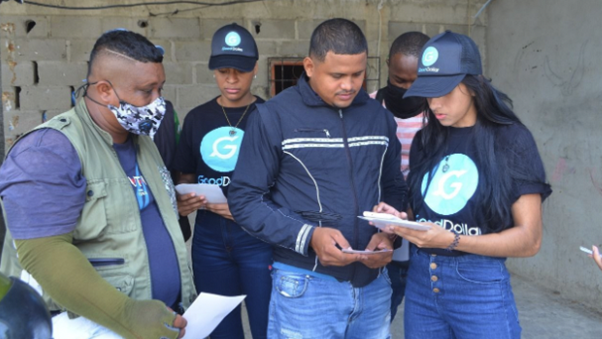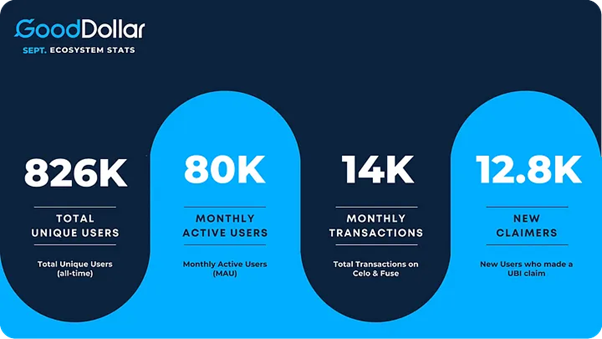
Access to money—just like access to clean air or education—is often treated as a reward, rather than a right. The idea of universal, or unconditional, basic income (UBI) is trying to reimagine that. Having gained more traction, from pilot programs in Kenya and Brazil to guaranteed income trials in California and Finland, people across sectors are starting to rethink how value circulates and who gets to participate.
While most UBI efforts focus on policy reform and state-led redistribution, a parallel wave of experimentation is happening in Web3. Projects like Worldcoin, Circles UBI, and GoodDollar are exploring whether decentralized infrastructure—wallets, smart contracts, identity protocols, DAOs—can help build the scaffolding for inclusive, recurring income at a global scale.
Among these, GoodDollar is the longest-running and largest user-scale crypto UBI project to date. What can we learn from its design, growth, and real-world use?
Launched in 2020 and founded by Yoni Assia, CEO of eToro, GoodDollar is a nonprofit protocol designed to deliver a small, daily income in the form of a digital token (G$) to anyone with an internet connection. There’s no means testing, no application process, and no geographic restriction. If you can prove you’re a unique human, you’re eligible.
GoodDollar’s model functions like a decentralized public endowment. Here’s how it works:
G$ is reserve-backed and its price is governed by an augmented bonding curve to avoid runaway inflation (approximate value: $0.0001). There was no ICO, no founder allocation, and no speculative pump mechanics.

After a governance proposal in March 2025, GoodDollar launched Version 4, migrating from Ethereum to Celo. This shift brought gasless transactions, better mobile performance, and lowered barriers for users in low-bandwidth regions. According to GoodDollar, the transition onboarded over 100,000 new users within weeks.
The protocol is governed by GoodDAO, where decisions are made through non-transferable GOOD tokens. Voting is conducted via Snapshot, with execution handled through a community multi-sig. One of the discussed points have included the idea of burning a portion of each distribution to control inflation—an example of how the protocol’s economic design continues to evolve.
While the monetary value of daily G$ is small—usually just a few cents—it plays a significant role in the digital lives of many. According to GoodDollar, roughly 67% of their users come from emerging markets, where access to banks, stable income, or financial education is limited.
The GoodWallet app is beginner-friendly, gasless, and integrates biometric identity verification via FaceTec to ensure one person = one wallet. This anti-Sybil system, called GoodID, creates a form of decentralized "proof of personhood" without formal KYC.
By interacting with G$, users are exposed—often for the first time—to tools and functionalities such as token transfers, decentralized finance (DeFi) tools like Superfluid, stablecoins, and decentralized exchanges, and even onchain governance and participation.
So, rather than being just a UBI, GoodDollar provides a hands-on crypto literacy layer, opening the doors to many potential opportunities.
Beyond its core UBI system, GoodDollar is evolving into a broader infrastructure for community-driven funding and experimentation.
In late 2024, the protocol launched GoodOffers, a tool that enables targeted income streams for specific communities—without introducing new know-your-customer (KYC) processes. Built on the same Sybil-resistant identity rails (GoodID), GoodOffers allows NGOs, DAOs, and donors to create conditional income flows tailored to local needs and contexts.
Since its launch, GoodOffers has been used to support a women’s cooperative in Cordinho, Brazil; fund a conservation UBI pilot in partnership with the Climate Collective; and enable mobile top-ups through Fonbnk using G$ as payment. This flexibility adds a new layer of modularity to GoodDollar’s UBI model—bridging grassroots needs with programmable, recurring income.
In March, the protocol expanded its reach with the launch of a $250K Ecosystem Fund to back builders, educators, and creators who strengthen the G$ economy. The fund’s first track, GoodBuilders, is an open experiment in decentralized grantmaking. Using quadratic funding via Gitcoin, it supports local initiatives that increase G$ utility, onboard new users, or develop regionally relevant applications, with the community playing a direct role in how funds are distributed.
Whether or not GoodDollar becomes the standard for UBI, we already see the value in the scaffolding it’s building: identity, governance, incentives, and user experience—all designed for real humans, in real economies.
For more information, you can also read the GoodDollar whitepaper from 2022 here.
Support thoughtful, independent crypto journalism and help us continue highlighting blockchain’s potential for social and environmental impact.
cryptoaltruists.eth